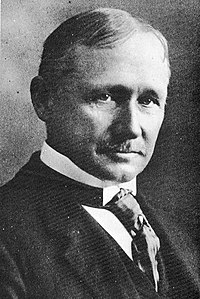
Last time we saw the Utopian glimmer Taylor thought his vision of scientific management offered. Let's wrap that up and get to the Agile connection this time.
In his cold, raspy, ethereal voice, Taylor's ghost asserts that scientific management gives both workers and management what both groups most want, viz., high wages and low per-piece labor costs (cf. p 93). He goes on to say that workers "should" be encouraged and allowed to propose new and better methods of working, which after adequate study and experimentation, management may choose to adopt as the new standard for a given task. The individual worker who proposed the new method "should" receive full credit for the innovation and be paid a cash bonus as a reward (cf. p. 128). Taylor is unable to provide an answer to the question of just how exactly any worker, bound up by the rigid work rules and defined pace scientific management imposes, could ever have the opportunity even to think of a better way of performing a work task. Even worse, management is under no obligation to allow workers to experiment with alternative ways of working.
Taylor wraps up his case with yet another Utopian flourish. First, he states that the new division of duties between labor and management along with "intimate, friendly cooperation" ensures labor peace (cf. p. 140). And finally, scientific management, by dramatically increasing wages ends the wage problem. Even more, the close, constant, and intimate cooperation (there's that formula yet again) between management and labor produces a commonality of interest that makes labor strife impossible. The broader benefits that result are reduction in poverty (through high wages), cheaper products, and better competitiveness even during economic downturns, resulting in minimal economic dislocation (cf. pp. 143-44).
Those are bold statements, but they are -- and always were -- as ethereal as the ghost who continues to assert their validity. First off, Taylor never had any evidence to support his Utopian vision of labor-management cooperation and perpetual peace. Labor strife did not end as scientific management spread. Indeed, scientific management simply escalated the labor-management war by giving management a potent weapon to use against labor. Secondly, he simply ignored the greed and lust for power that characterize the owners and managers of capitalist enterprises. Scientific management came into widespread use and indeed is still at least implicit in the vast majority of businesses of all types.
Taylor provided the theoretical basis for management to remove every shred of the workers' control over the work they were doing. He took away their tools, their knowledge and expertise, and their genius for self-organization and replaced them with rigid command-and-control structures that governed every aspect of work. His predictions of huge increases in productivity, the one aspect of scientific management for which he had good data, were indeed realized. High wages did not follow, however. Industrial management realized that they could realize vastly higher profits by reducing their workforces by the 80-90% Taylor forecast. As scientific management spread rapidly throughout the US economy, high unemployment became the norm, making it very easy for management to use scientific management to squeeze high productivity from workers while offering only the threat of replacement as an incentive to stay in their increasingly oppressive jobs. Henry Ford's famous doubling of his workers' wages in 1914 was short-lived: a stockholder rebellion and resulting lawsuit forced wages back down.
So where's the long-awaited Agile connection, you might ask (I'm sure you are)? Easy. Taylor was wrong. Scientific management, with its heavy handed, command-and-control work methods, stifled innovation by making it impossible for the people actually doing the work to contribute to the development of new and better products. Agile frees this most important source of innovative thinking from the bonds of rigid work rules and suffocating management oversight. Companies haunted by the ghost of Frederick Winslow Taylor stagnate and are unable to adapt to the rapidly changing economic conditions that are now the rule rather than the exception.
Chase Taylor's ghost from your building -- and from your mind. Take advantage of the power of self-organization. Win in the market by being adaptable, by drawing upon the power of innovation that comes with building teams of motivated individuals and trusting them to get the job done. It's long past time for Taylor's ghost and his century old prescriptions to be laid to rest.
All for now....
...-.-
References
Taylor, Frederick Winslow, The Principles of Scientific Management. New York & London: Harper, 1911, reprint edition, 1934.






No comments:
Post a Comment